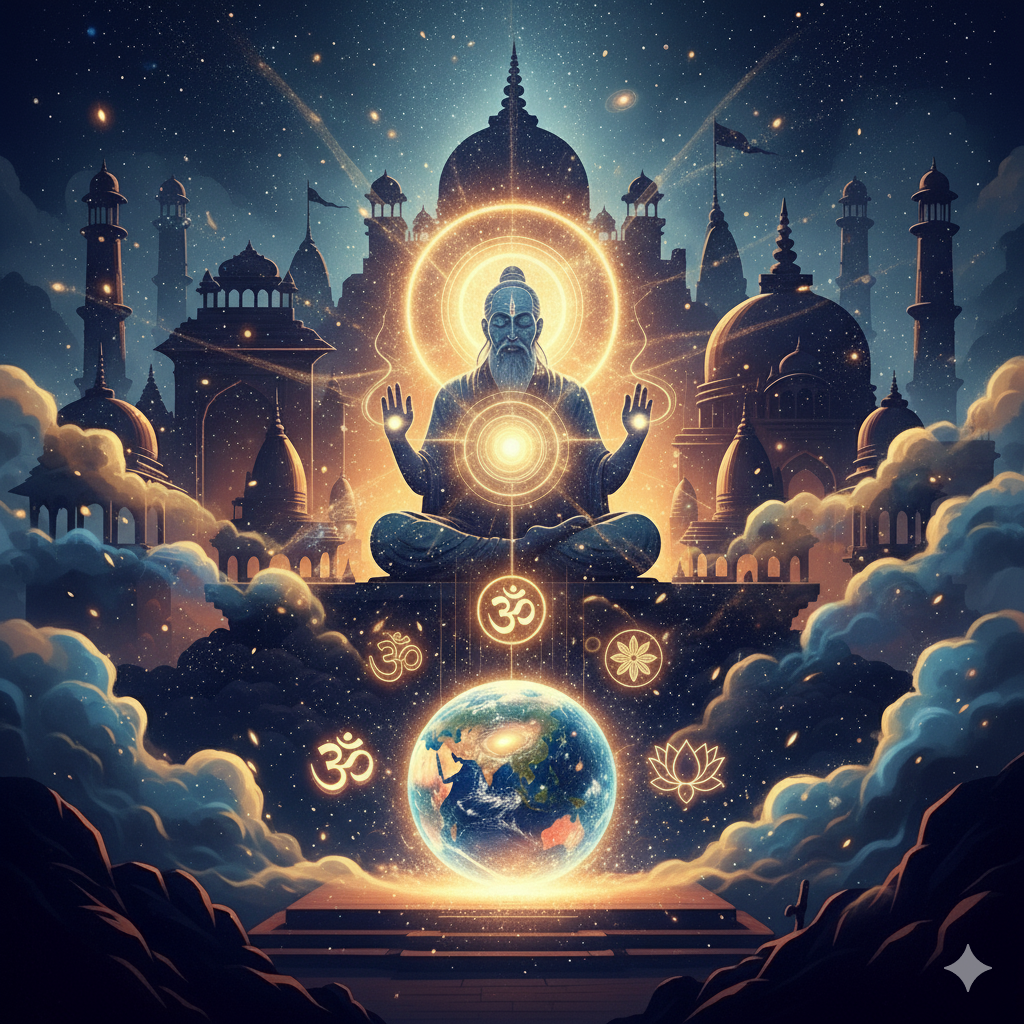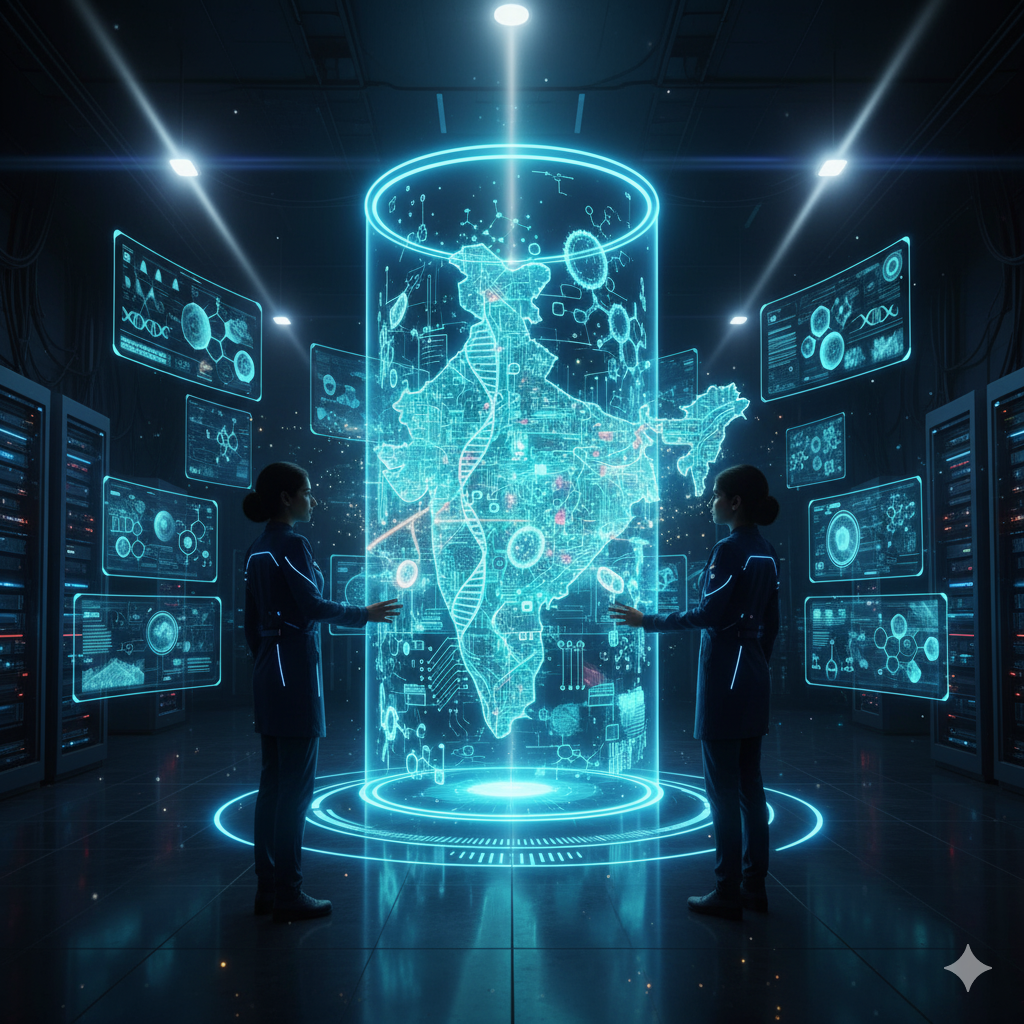Introduction
In the contemporary global order, the notion of power has transcended traditional military and economic might. Soft power, which emphasizes cultural influence, diplomacy, and ethical leadership, has emerged as a pivotal instrument of global engagement. India, with its ancient civilization, rich cultural heritage, and democratic ethos, is increasingly being recognized as a Vishwaguru, or world teacher, capable of guiding the international community through diplomacy, culture, and moral influence.
India’s diplomatic strategy blends soft power, strategic partnerships, and multilateral engagement to project its influence on global peace, culture, and development. By leveraging its philosophical traditions, cultural richness, and democratic experience, India is shaping a new model of international relations that balances ethics with strategic interests.
This article explores India’s path as a Vishwaguru in diplomacy, analyzing its soft power initiatives, international relations strategies, peacebuilding efforts, cultural influence, and challenges in asserting global leadership.
1. The Historical and Civilizational Roots of India’s Soft Power
India’s soft power is deeply embedded in its civilizational ethos:
- Philosophy and Ethics:
- Concepts like Vasudhaiva Kutumbakam (“the world is one family”) and Ahimsa (non-violence) form the foundation of India’s moral authority.
- These principles have guided India’s foreign policy, emphasizing dialogue, cooperation, and ethical governance.
- Concepts like Vasudhaiva Kutumbakam (“the world is one family”) and Ahimsa (non-violence) form the foundation of India’s moral authority.
- Religion and Spirituality:
- India’s major religions—Hinduism, Buddhism, Jainism, Sikhism—emphasize peace, tolerance, and moral responsibility.
- Historical dissemination of Buddhism through Asia promoted peaceful cultural exchange, establishing India as a global moral compass.
- India’s major religions—Hinduism, Buddhism, Jainism, Sikhism—emphasize peace, tolerance, and moral responsibility.
- Culture and Knowledge:
- India’s literature, arts, music, yoga, Ayurveda, and educational institutions have historically attracted global learners.
- Ancient universities like Nalanda and Takshashila symbolized India’s role as a hub of global knowledge.
- India’s literature, arts, music, yoga, Ayurveda, and educational institutions have historically attracted global learners.
These historical foundations provide India with credibility and legitimacy in projecting soft power globally.
2. Modern Soft Power Instruments of India
In the contemporary era, India’s soft power manifests through various instruments:
a. Cultural Diplomacy
- Yoga and Ayurveda: India’s promotion of International Yoga Day (2015) by the UN reflects its cultural influence and global health diplomacy.
- Bollywood and Literature: Indian cinema and literary works create cultural bridges, shaping global perceptions of India.
- Festivals and Art: Indian classical music, dance, and festivals are celebrated worldwide, enhancing cultural diplomacy.
b. Education and Knowledge Exchange
- India attracts students globally through scholarships and programs like ICC (Indian Council for Cultural Relations) initiatives.
- Online platforms and foreign university collaborations spread Indian knowledge in technology, philosophy, and sciences.
c. Diaspora Engagement
- The Indian diaspora, estimated at 32 million globally, acts as informal cultural ambassadors.
- Indian-origin leaders, professionals, and entrepreneurs in countries like the USA, UK, Canada, and UAE influence bilateral relations positively.
d. Development Assistance and Humanitarian Aid
- Programs like Indian Technical and Economic Cooperation (ITEC) provide technical training to developing nations.
- Vaccine Maitri during COVID-19, where India supplied vaccines to over 100 countries, showcased humanitarian diplomacy.
- Disaster relief and infrastructure assistance strengthen India’s reputation as a responsible global actor.
3. India’s Strategic International Relations
India combines soft power with strategic partnerships, reflecting a balanced approach to diplomacy:
a. Regional Leadership
- India is a key player in South Asia, promoting peace through initiatives like the South Asian Association for Regional Cooperation (SAARC).
- India engages with neighbors like Bangladesh, Nepal, Sri Lanka, and Bhutan in infrastructure, trade, and disaster management, fostering regional stability.
b. Global Partnerships
- United Nations (UN): India actively participates in peacekeeping, climate action, and sustainable development initiatives.
- G20 Presidency (2023): India emphasized themes like One Earth, One Family, One Future, highlighting its commitment to inclusive development and climate action.
- Strategic alliances with the USA, EU, Japan, and ASEAN nations enhance India’s influence in shaping global norms.
c. Multilateral Diplomacy and Peacebuilding
- India advocates conflict resolution through dialogue, emphasizing non-interventionism and sovereignty respect.
- As one of the largest UN peacekeeping contributors, India demonstrates practical commitment to global peace.
- Initiatives like the International Solar Alliance (ISA) show India’s capacity to lead global coalitions on shared challenges.
4. India’s Moral Authority and Ethical Diplomacy
India’s Vishwaguru role is not limited to culture and strategy; it extends to ethics in international relations:
- Climate Leadership:
- Promoting renewable energy, sustainable development, and global climate agreements, India advocates environmental justice for developing nations.
- Promoting renewable energy, sustainable development, and global climate agreements, India advocates environmental justice for developing nations.
- Non-Violence and Peace Advocacy:
- India promotes disarmament, conflict resolution, and dialogue, drawing from Gandhian principles of Ahimsa.
- India promotes disarmament, conflict resolution, and dialogue, drawing from Gandhian principles of Ahimsa.
- Inclusive Global Governance:
- India champions reforms in global institutions like the UN Security Council, ensuring fair representation for the Global South.
- India champions reforms in global institutions like the UN Security Council, ensuring fair representation for the Global South.
- Humanitarian Leadership:
- Aid to disaster-affected nations, pandemic response, and technology transfer projects reflect India’s commitment to global welfare.
5. India’s Cultural Influence as Soft Power
India’s cultural diplomacy has global resonance:
- Yoga and Wellness: Yoga has become a worldwide practice, fostering mental health, physical well-being, and cross-cultural understanding.
- Bollywood: Indian cinema promotes language, lifestyle, and values, creating a positive global perception.
- Cuisine and Festivals: Indian food, Diwali, Holi, and other cultural elements create intercultural dialogues.
- Traditional Knowledge Systems: Ayurveda, Vedic mathematics, and Indian art forms continue to inspire global researchers, wellness practitioners, and educators.
These elements enhance India’s appeal, credibility, and influence without coercion, demonstrating the essence of soft power.
6. India’s Role in Global Peace and Security
India’s diplomatic influence extends to peace, security, and ethical international engagement:
- UN Peacekeeping Contributions: India has contributed over 200,000 personnel to UN missions, reflecting its commitment to global stability.
- Counterterrorism and Anti-Piracy Operations: India plays a role in securing the Indian Ocean Region and contributes to maritime safety.
- Conflict Mediation: India’s historical neutrality and emphasis on dialogue position it as a credible mediator in regional and global conflicts.
- Nuclear Diplomacy: India advocates responsible nuclear policy, balancing deterrence with ethical commitment to non-proliferation.
7. India’s Challenges in Asserting Global Leadership
While India’s soft power is strong, several challenges persist:
- Geopolitical Competition: Rising influence of China and shifting alliances require careful diplomacy.
- Perceptions and Stereotypes: Misunderstandings of India’s domestic policies can affect global influence.
- Resource Constraints: Economic limitations can hinder India’s ability to project influence as extensively as Western powers.
- Domestic Stability: Maintaining democratic principles, social harmony, and sustainable development at home is essential for credibility abroad.
8. Future Roadmap: India as Vishwaguru in Diplomacy
To fully realize its potential as Vishwaguru in global diplomacy, India can focus on:
- Strengthening Cultural Diplomacy: Expanding yoga, wellness, arts, and education programs internationally.
- Promoting Ethical Leadership: Leading global discussions on climate justice, peace, and human rights.
- Enhancing Regional Cooperation: Strengthening South Asian and Indo-Pacific collaborations.
- Digital Diplomacy: Leveraging technology to engage globally, from e-governance to AI and space partnerships.
- Global Education and Research: Attracting international scholars, fostering innovation, and sharing traditional knowledge systems.
- Youth Engagement: Encouraging global youth networks to propagate India’s values of peace, ethics, and inclusivity.
Conclusion
India’s journey toward becoming Vishwaguru through soft power and international relations is rooted in a unique blend of civilization, culture, ethics, and modern strategy. By integrating its philosophical values with contemporary diplomacy, India has emerged as a trusted global partner, capable of guiding the world in peacebuilding, cultural exchange, and sustainable development.
In an era marked by geopolitical uncertainty, climate crises, and cultural conflicts, India’s approach demonstrates that true leadership is not merely coercive power but moral guidance, ethical engagement, and inclusive influence.
Through culture, knowledge, humanitarian aid, and strategic partnerships, India continues to assert itself as a Vishwaguru — a beacon of global peace, wisdom, and influence in the 21st century.




